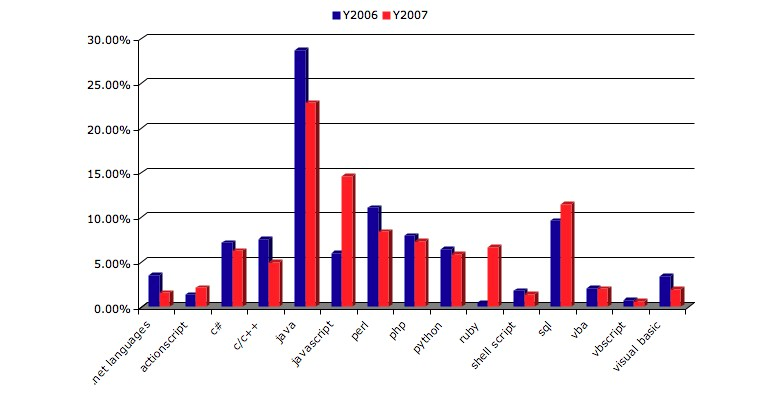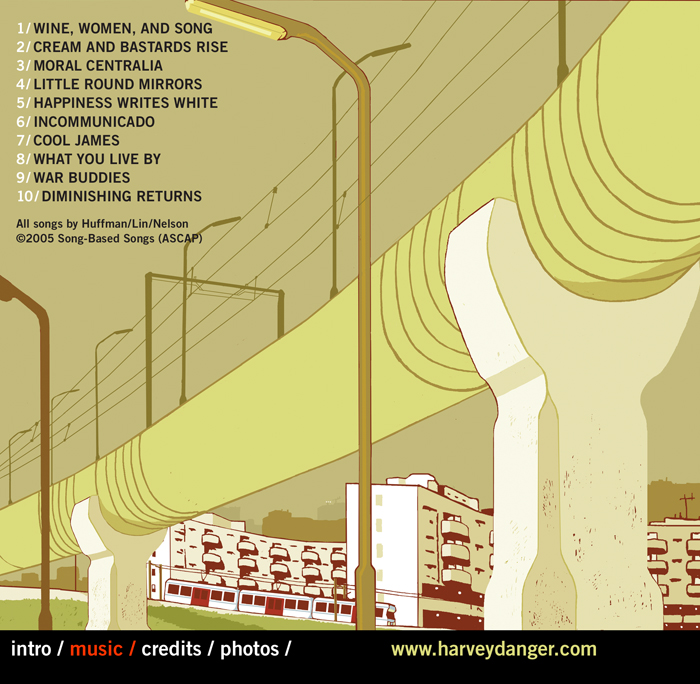"the free download isn't a frivolous act" 
By Tim O'Reilly on February 26, 2007
Peter Brantley writes: "
harvey danger is releasing their newest album on the net, for free, and they have
a well written essay on why -"
"We embark on this experiment with both enthusiasm and curiosity—and, ok, maybe a twinge of anxiety. Why are we doing this? The short answer is simply that we want a lot of people to hear the record.
"However, it’s important that people understand the free download concept isn’t a frivolous act. It’s a key part of our promotional campaign, along with radio and press promotion, live shows, and videos. It’s a bet that the resources of the Internet can make possible a new way for musicians to find their audience - and forge a meaningful artistic career built on support from cooperative, not adversarial, relationships.
"We realize that digital files are the primary means by which a huge segment of the population is exposed to new music; we also believe that plenty of music lovers in the world will buy a record once they’ve heard it - whether via radio or computer.
"We also believe there’s an inherent qualitative difference at work—not only between MP3s and CDs, but between clicking a mouse and finding a record on the shelves of a good record store. These experiences are not mutually exclusive - they’re interdependent facets of music fandom, and equally important considerations for a band in our position. "
I love that line "the free download concept isn’t a frivolous act. It’s a key part of our promotional campaign."
This is the same lesson that was learned years ago by free software authors. (See my 2001 essay for Nature, Information Wants to Be Valuable.) And in publishing, slashdot pointed a few days ago to a great essay about Baen's approach to free downloads of science-fiction novels.
The last time I wrote on this topic, in a blog entry pointing to my essay Piracy is Progressive Taxation, Nick Carr wrote provocatively in the comments:
"If these statements are entirely true, as I'm sure you believe them to be, then it follows that piracy is on balance a good thing from an economic perspective - that piracy increases overall sales in a market rather than decreasing them. If that is true - and correct me if I've misinterpreted your argument - then I don't understand why you, as a publisher, wouldn't allow free, unprotected try-it-before-you-buy-it downloads of every title you publish."
I replied:
"You ask a really good question, and I hope I can answer it to your satisfaction. It is indeed the logical endpoint of the argument, but it is not the whole argument. (See "There's more than one way to do it.") Maximizing economic benefit comes from a mix of many factors, and all seemingly similar situations are not in fact equal.
First off, for many types of publishing, I absolutely believe that giving away free copies is the best way to build the market. If I published works -- say fiction -- that users merely want rather than require, and for which there is practically an unlimited supply, then acquiring more visibility is critical. Cory Doctorow has used this technique quite effectively to become much more successful as a science fiction writer than he might otherwise have done.
Now, by contrast, consider many of the types of books I publish. They are already very well known to their limited target market, and some of them are unique goods (say the definitive book on perl, written by the creator of the language). Here, a different calculus might apply. Awareness is not the issue.
Would this argument hold water? Advertising is good for products. Therefore, why don't you spend all your revenue on advertising to increase demand? The oracle at Delphi said, "Nothing too much." Just because something is good doesn't mean that it's the only good.
I remember in Dune, Frank Herbert talked about the ecological "law of the minimum," that growth is limited by that necessary nutrient that is in shortest supply. Sometimes its awareness, sometimes it's conversion to paying customers.
A lot has to do with the ratio of possible consumers of the free product who might be converted to paying customers to the total market size. If I have awareness with .01% of the target market, giving copies away to raise awareness to 10% of the market, where 10% of those might convert (1% total) is a good deal. But if I have awareness with 60% of the target market, and give my product away, with a 10% conversion rate, I've lost a great deal.
That's why I said piracy was progressive taxation. If you have high awareness, my experience (from a number of experiments that I've reported on over the years) is that making copies available for free can reduce your market, but that if you start out with low awareness, it can enhance them.
Open source software is a great example. Projects start small, and use viral marketing to get sampled. Companies (say Red Hat with Linux) ride that wave of awareness and then introduce new products that monetize more limited access."
That's why "the free download isn't a frivolous act" is such a profound statement. We're still learning the science, if you will, of online promotion via viral distribution. We should be running lots of experiments -- experiments that we measure -- and sharing the results so that we can all learn what works, not just taking either redistribution or restriction as religion. I hope to change my mind and my business practices many times as we continue to learn about what works.



